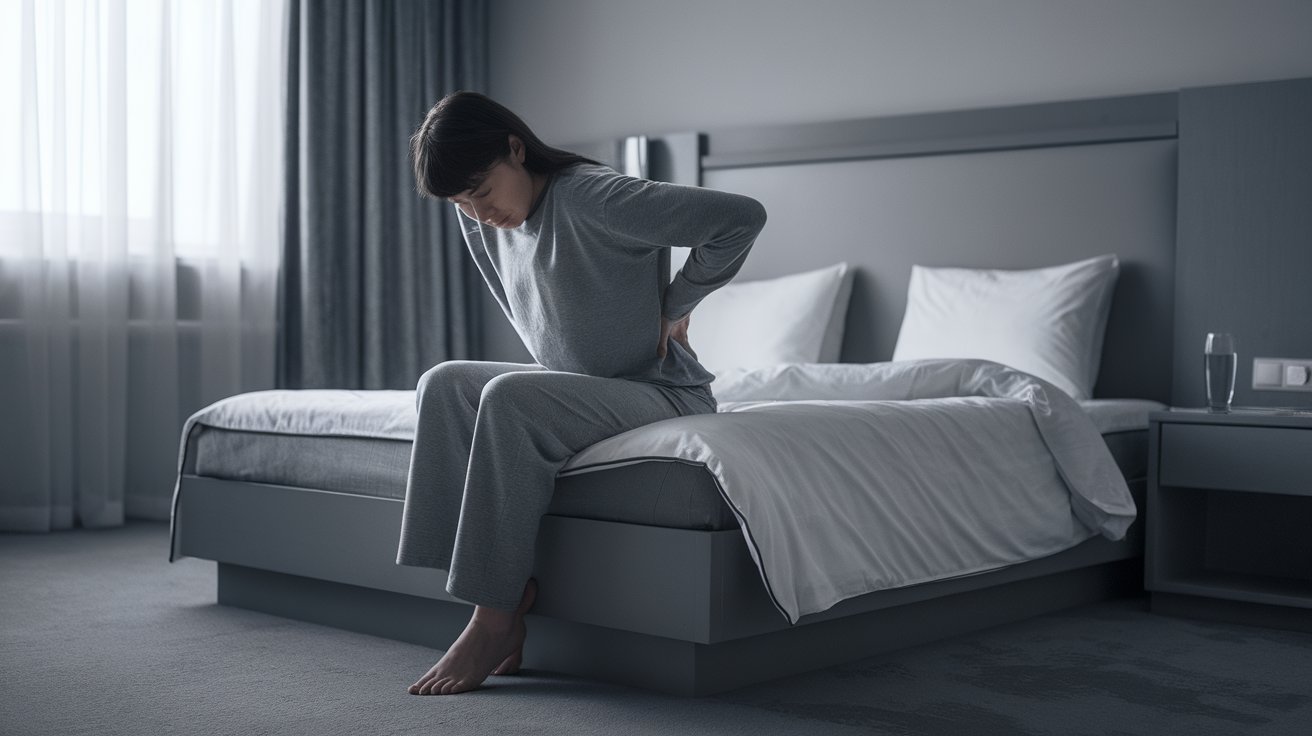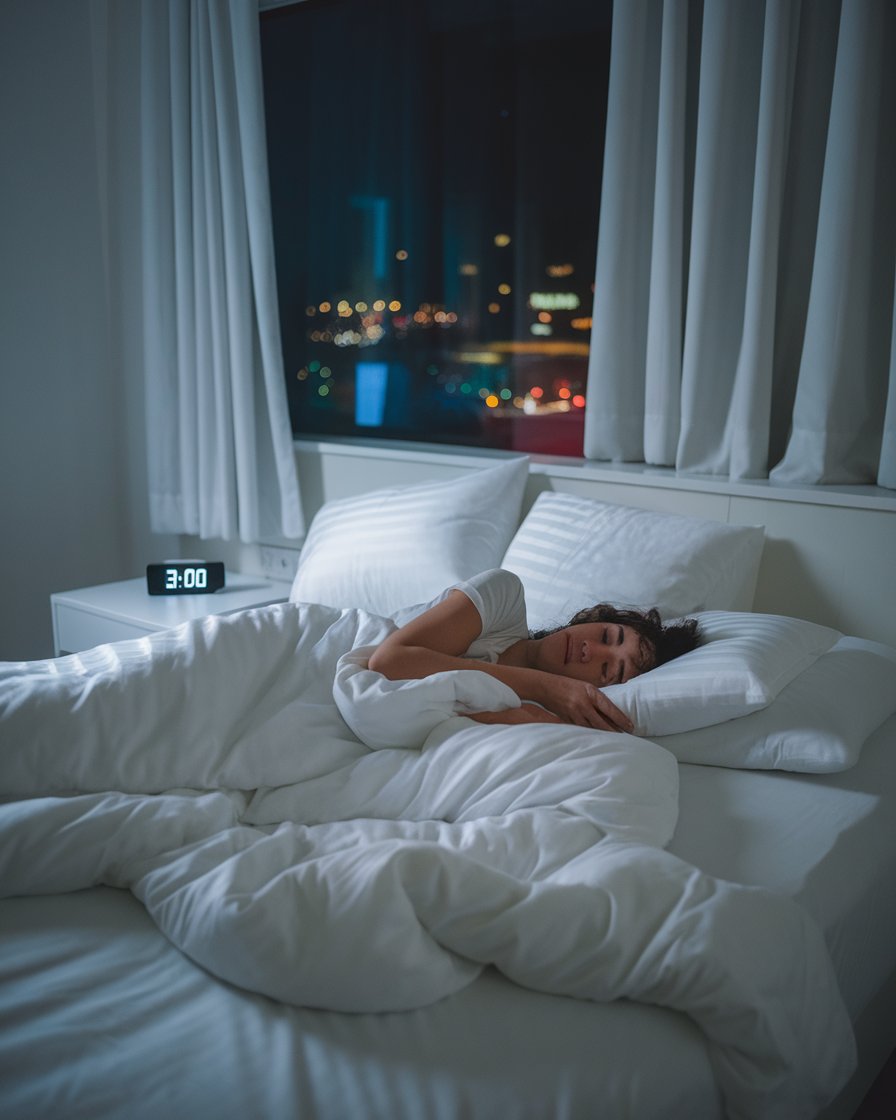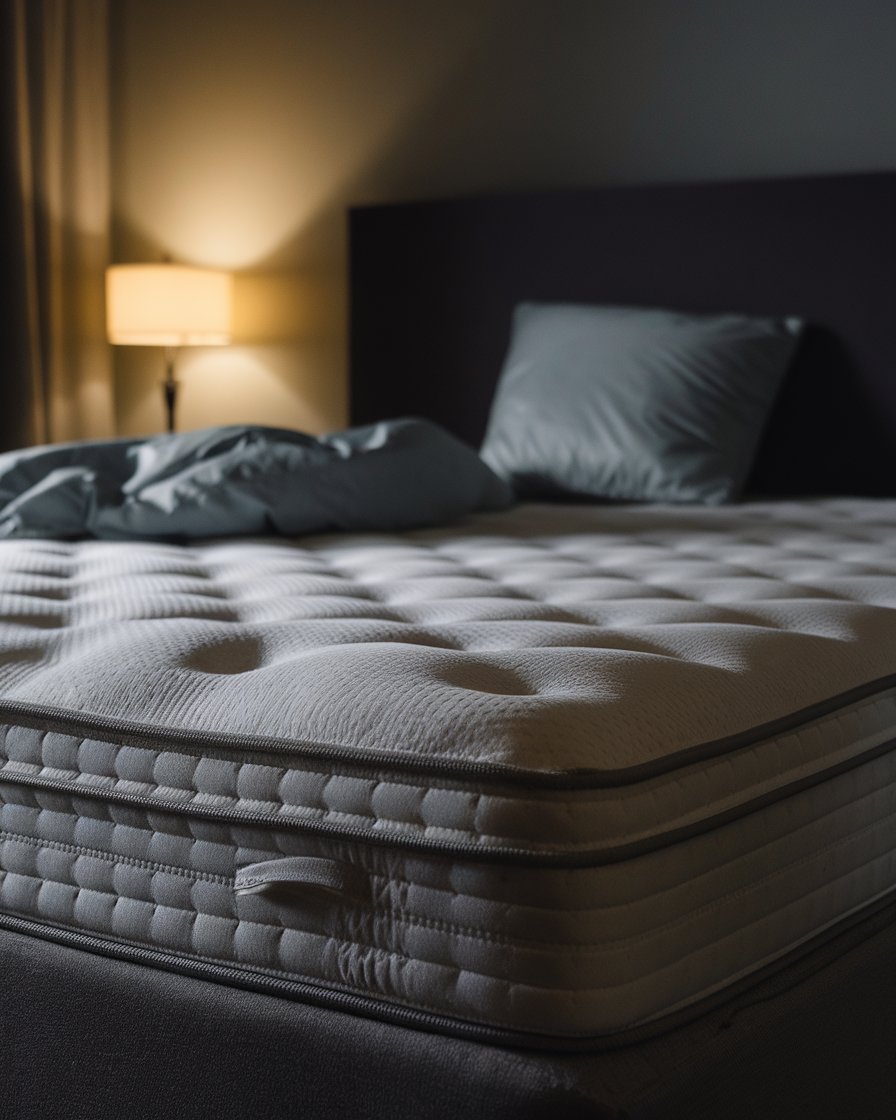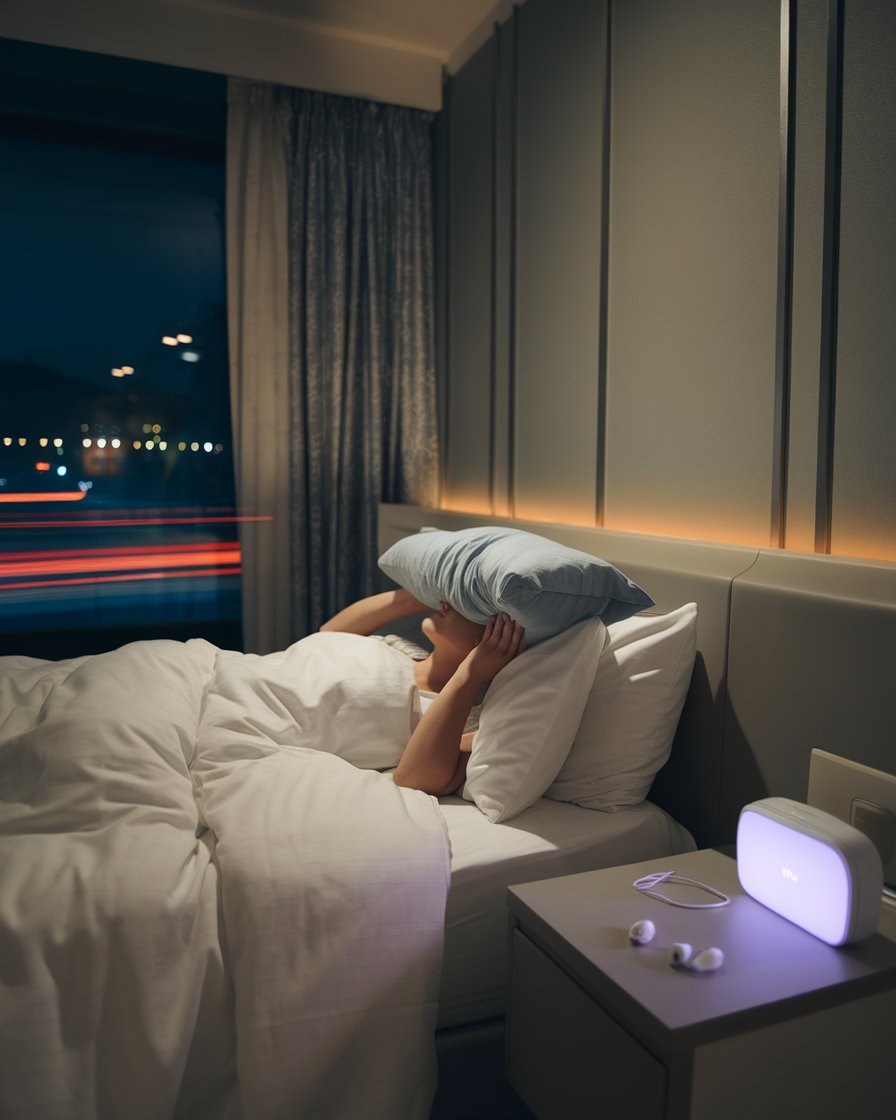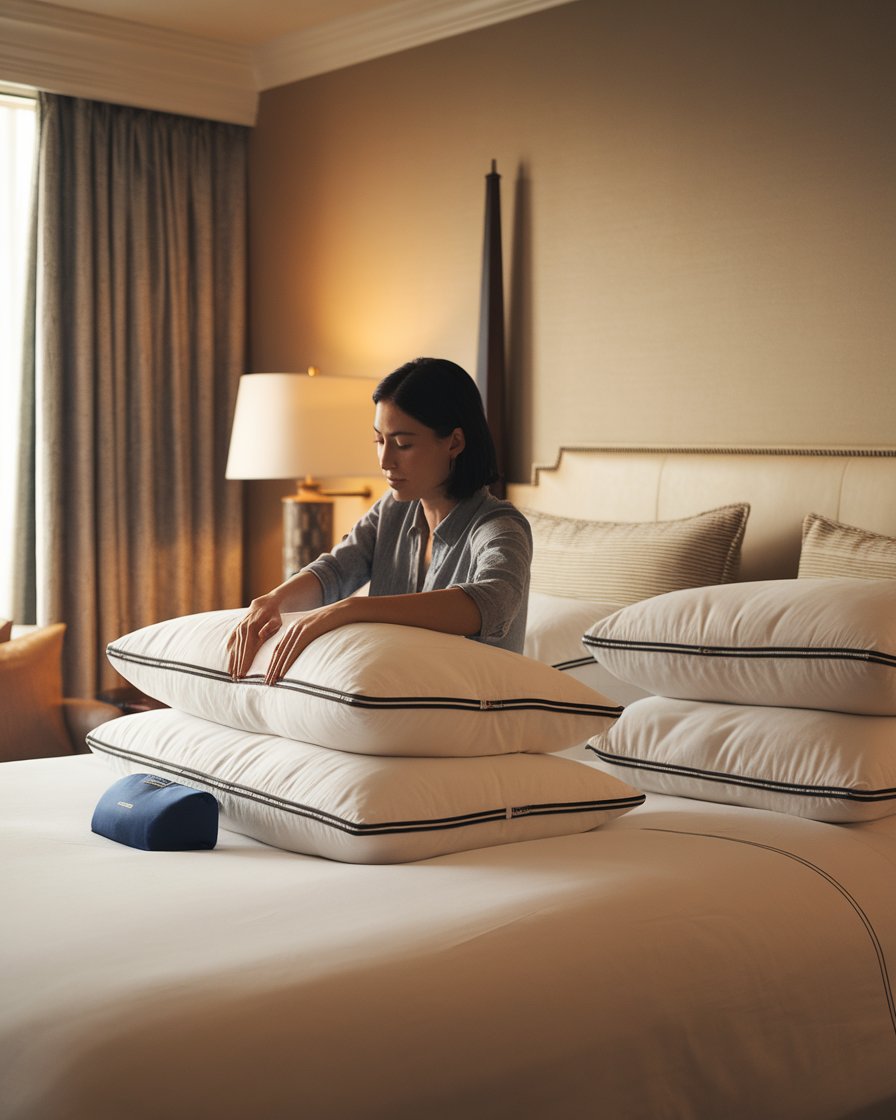Introduction
Traveling as a traveler often comes with the challenge of adapting to uncomfortable hotel beds, which can significantly affect your sleep quality. The mattress in many hotels may differ greatly from what you’re used to at home, leading to discomfort and even back pain. When sleeping in a hotel, factors such as the firmness of the mattress and pillows and bedding can play a role in how well you rest. Uncomfortable hotel beds not only disrupt your sleep but can also exacerbate existing back pain issues. It’s important to consider the mattress to make and the overall comfort and support offered by the bed you’re sleeping in.
To combat these challenges, it’s helpful to bring along items that can accommodate your needs, such as a comforter or your own pillows. This ensures that you maintain proper sleeping posture and have the right support throughout the night. When you’re staying in many hotels, the unfamiliar comfort levels can cause you to feel tense, making it even more crucial to adjust your sleeping environment to suit your personal comfort preferences.
Key Takeaways
- Unfamiliar hotel beds can disrupt your sleep quality and cause discomfort and back pain due to different mattress firmness.
- Sagging mattresses in hotels often lead to poor spinal alignment, which exacerbates existing back pain.
- Noise and the unfamiliarity of a hotel room can significantly reduce sleep quality, causing muscle tension and a sore back.
- Bringing your own pillow or requesting additional support can help alleviate back pain and improve sleep quality during hotel stays.
- Recognizing signs of a sagging mattress and making necessary adjustments can prevent discomfort and enhance your overall sleep experience.
- Simple adjustments like using a mattress topper or earplugs can make a big difference in combating discomfort and improving sleep quality in hotels.
How an Unfamiliar Hotel Bed Can Affect Your Sleep Quality
Traveling often means sleeping in a hotel bed, which may feel quite different from your mattress at home. This unfamiliarity can disrupt sleep quality and lead to discomfort. A hotel bed may be firmer or softer than you’re used to, causing muscle tension and back pain. The unfamiliar mattress can exacerbate existing back issues, leading to a sore back or disrupted sleep patterns. To maintain good sleep quality, consider bringing your own pillow or requesting additional pillows for support. Adjusting the hotel bed to make it more comfortable, such as using a mattress topper, can also help alleviate back pain and improve sleep quality.
Effective Strategies to Avoid Back Pain from Uncomfortable Hotel Beds
1. The Importance of Personalized Sleep Solutions
To avoid back pain during your stay, it’s important to personalize your sleep environment as much as possible. Bringing items like your own pillow or requesting additional pillows from the hotel can provide the necessary support to alleviate discomfort and improve sleep quality.
2. Understanding the Role of Mattress Firmness
One of the main reasons hotel beds hurt your back is due to improper mattress firmness. Hotel mattresses are often either too firm or too soft compared to what you’re used to, which can lead to muscle tension and poor sleep. Understanding your preference and requesting a mattress topper can help achieve a better balance.
3. Adapting to an Unfamiliar Sleep Environment
The unfamiliarity of the hotel room, including the bed and surrounding environment, can cause poor sleep and discomfort. Simple adjustments like controlling the room temperature, using earplugs to reduce noise, and making the bed more comfortable can significantly improve your sleep quality and reduce the chances of waking up with back pain.
The Role of Mattress Firmness in Sleep Comfort
The firmness of a mattress plays a crucial role in your sleep comfort, especially when staying in a hotel. A mattress that is too firm or too soft compared to what you’re used to can cause muscle tension and back pain. This change in firmness might disrupt your sleep quality, leading to a sore back and stiffness in the morning. Adjusting to the hotel bed by adding a mattress topper or using extra pillows for support can help mitigate these effects and improve your sleep comfort during your stay.
Adjusting to a New Sleeping Environment
Sleeping in a new environment, like a hotel room, often requires some adjustment. The unfamiliarity of the bed and surroundings can affect how well you sleep. Bringing personal items, such as your own pillow, can help make the environment feel more like home, improving your sleep quality. Additionally, adjusting the room temperature and ensuring a quiet atmosphere can further enhance your comfort, allowing for better sleep and reducing the chances of waking up with back pain or muscle soreness.
The Impact of a Sagging Mattress on Back Pain During Hotel Stays
A sagging mattress in a hotel can cause significant back pain, especially if you already experience discomfort at home. When a hotel bed sags, it fails to provide the optimal support needed for a restful sleep. This lack of support can strain your muscles, leading to pain in your back and neck. Poor-quality mattresses may also contribute to disrupted sleep and muscle tension. Communicating with hotel staff to request a room with a firmer mattress or using a mattress topper can help alleviate back pain. Ensuring you sleep in a position that supports your spine is crucial for avoiding further discomfort.
Case Study: The Impact of a Sagging Mattress on a Business Traveler’s Stay
During a business trip, a traveler staying at a mid-range hotel reported severe back pain after the first night due to a sagging mattress. The discomfort disrupted his sleep and affected his performance during meetings the next day. Recognizing the issue, he contacted the hotel staff, who immediately offered to change his room and provided a mattress topper for added support. The traveler reported a significant improvement in his comfort level after the changes were made, and his back pain was notably reduced. This case highlights the importance of addressing mattress quality in hotels and the role of proactive customer service in mitigating discomfort for guests.
Recognizing the Signs of a Sagging Mattress
A sagging mattress in a hotel can be a major contributor to back pain during your stay. Recognizing the signs of a sagging mattress, such as an uneven sleeping surface or a visible dip in the bed, is important. Sleeping on a sagging mattress can lead to poor spinal alignment, exacerbating existing back pain or causing new discomfort. If you notice these signs, requesting a different room or using a mattress topper to provide additional support can help alleviate the pain and ensure a more restful sleep.
Tips for Alleviating Back Pain on a Sagging Mattress
If you’re stuck with a sagging mattress during your hotel stay, there are steps you can take to alleviate back pain. Placing a folded towel or blanket under the sagging area can provide temporary support and improve spinal alignment. Additionally, using pillows to support your lower back and neck can help reduce muscle strain. These small adjustments can make a big difference in comfort, helping you wake up without the aches and pains often caused by a poor-quality mattress.
Why Noise and Unfamiliarity in Hotel Rooms Underlie Poor Sleep
The noise and unfamiliarity of a hotel room can underlie poor sleep during travel. Unfamiliar sounds, like the hum of air conditioning or noise from other guests, can make it difficult to sleep peacefully. This disrupted sleep can lead to a sore back and general discomfort. To combat this, consider bringing earplugs to reduce noise or requesting a quieter room. The unfamiliarity of the hotel bed and its surroundings may also contribute to difficulty sleeping, causing strain and muscle tension. By creating a more familiar and comfortable sleeping environment, you can improve your overall sleep quality while traveling.
Strategies to Minimize Noise in a Hotel Room
Noise is a common issue in hotel rooms that can underlie poor sleep quality. Simple strategies like using earplugs, turning on a white noise machine, or requesting a room away from busy areas can help reduce noise disturbances. Minimizing noise not only helps you fall asleep faster but also prevents interruptions that can lead to muscle tension and a sore back. By ensuring a quieter environment, you can improve your overall sleep quality and wake up feeling more refreshed.
Overcoming the Unfamiliarity of a Hotel Room
The unfamiliarity of a hotel room can make it difficult to get a good night’s sleep, especially if you’re prone to back pain. Bringing personal items, such as your own pillow or blanket, can make the space feel more like home, helping you relax and sleep better. Additionally, familiarizing yourself with the room’s layout and adjusting the temperature to your preference can reduce discomfort and promote better sleep. These small steps can help you overcome the unfamiliarity and improve your overall travel experience.
“The mass of men lead lives of quiet desperation.” — Henry David Thoreau, Walden
Tips for Better Sleep: Pillows for Support and Alleviating Back Pain
Getting better sleep in a hotel often requires adjusting your sleeping environment to support your comfort and alleviate back pain. Bringing your own pillow from home or requesting additional pillows from hotel staff can provide the necessary support to maintain proper posture. A supportive pillow helps reduce muscle tension and prevents pain in your neck and back. Additionally, using a mattress topper can make a hotel bed more comfortable, helping to relieve discomfort caused by an unfamiliar mattress. By taking these steps, you can enhance your sleep quality and wake up feeling refreshed, even when away from home.
Choosing the Right Pillow for Optimal Support
Choosing the right pillow is essential for maintaining good posture and alleviating back pain during your hotel stay. A pillow that is too flat or too thick can strain your neck and back, leading to discomfort and disrupted sleep. When staying in a hotel, consider bringing your own pillow or requesting one that suits your needs. A well-supported neck and spine can significantly improve your sleep quality, making your travel experience more enjoyable.
Using Pillows to Relieve Pressure Points
Pillows can also be used to relieve pressure points that may cause discomfort during sleep. Placing a pillow under your knees if you sleep on your back, or between your knees if you sleep on your side, can help maintain spinal alignment and reduce muscle strain. These simple adjustments can prevent back pain and ensure you wake up feeling rested. Utilizing pillows for support in this way can make a significant difference in your comfort and overall sleep quality in a hotel.
[lasso rel=”amazon-31″ id=”10222″]
Conclusion
When staying in a hotel, it’s crucial to consider the comfort and support of the bed to avoid trouble sleeping and potential back pain. An uncomfortable bed can easily hurt your back if it doesn’t match the firmness of the mattress at home. Selecting the right mattress is essential, as well as bringing along personal items like your own pillow to help maintain good posture and ensure a restful night’s sleep. Additionally, focusing on privacy and comfort in your hotel room can contribute significantly to your overall sleep quality.
If the hotel bed fails to provide the support you need, consider adjusting the environment with items that add to the luxurious feel, like a cotton comforter or additional pillows. Small adjustments can make a big difference, helping you avoid discomfort and ensuring you wake up refreshed, ready for the day ahead. Remember, your sleep is vital, and taking these steps can help you rest well even when away from home.


